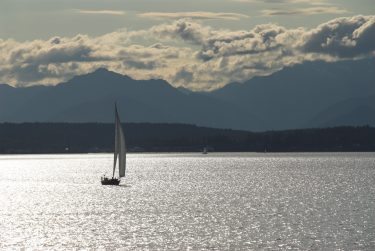
Puget Sound is one of the best places in the United States to capture energy from the tides. Tidal currents throughout the Sound move especially swift in the narrow spaces around islands and peninsulas.
Those currents are what developers were eyeing when they proposed the first Pacific Northwest tidal energy pilot project in Admiralty Inlet, between the Olympic Peninsula and Whidbey Island. Though federal permits were issued, the project ultimately failed to launch in 2014 due to cost.
A University of Washington paper published May 20 in Energy Research & Social Science examined Washington residents’ perceptions and support for tidal energy, a fledgling industry in the U.S. that is perhaps 20 years behind land-based wind energy. The study found that people who believe climate change is a problem and see economic, environmental and/or social benefits to using tidal energy are more likely to support such projects.
“We can focus on the technical and economic feasibility of tidal energy projects, but really at the early stages we also want to bring social science in because we shouldn’t look at these things in a vacuum or silo,” said lead author Stacia Dreyer, a postdoctoral researcher at the UW School of Marine and Environmental Affairs and adjunct faculty at Arizona State University’s School for the Future of Innovation in Society.
Read more at UW Today »
